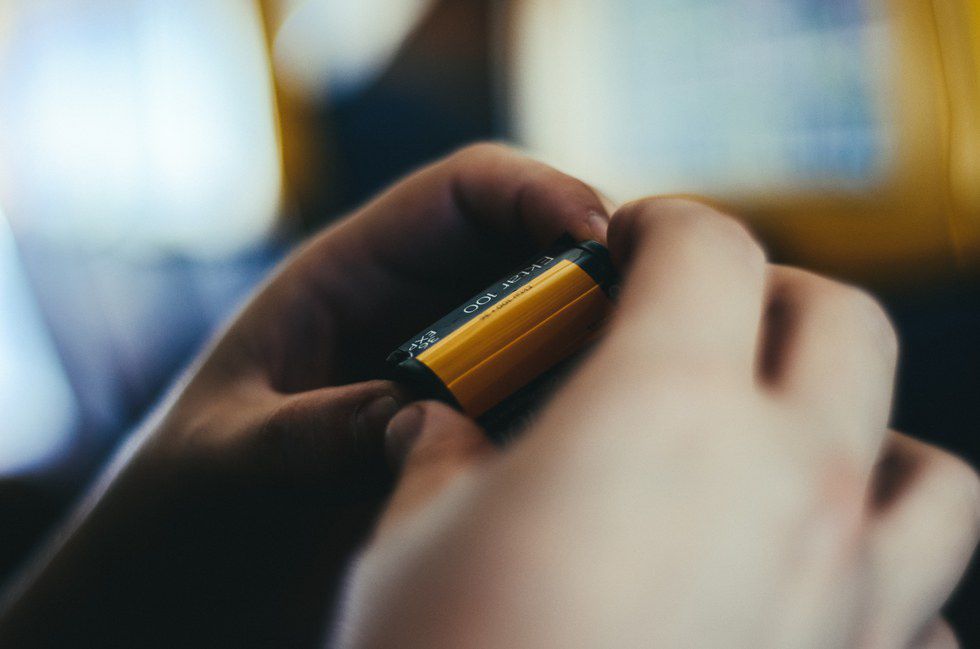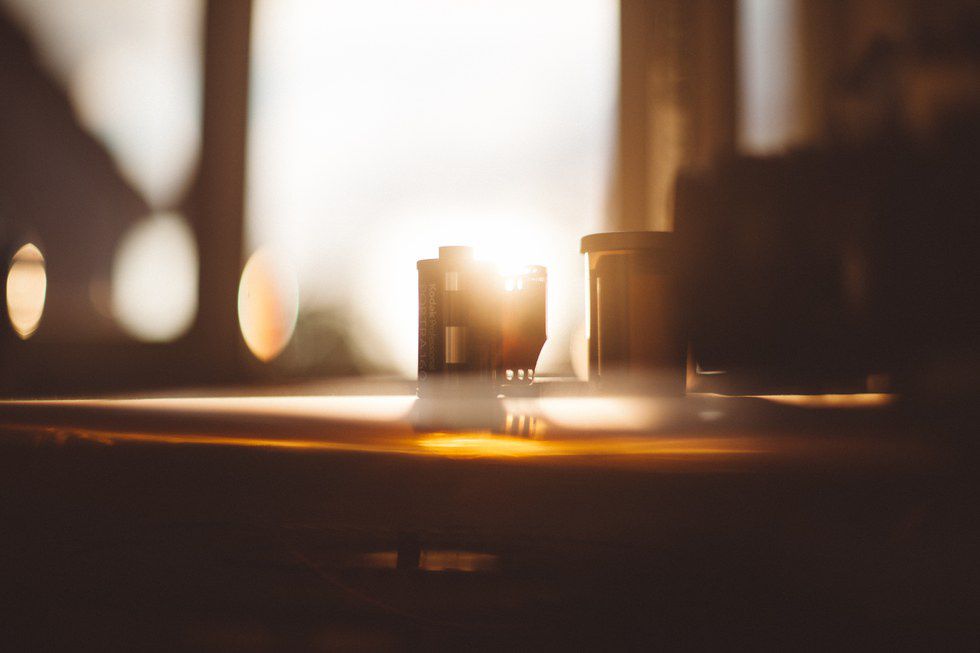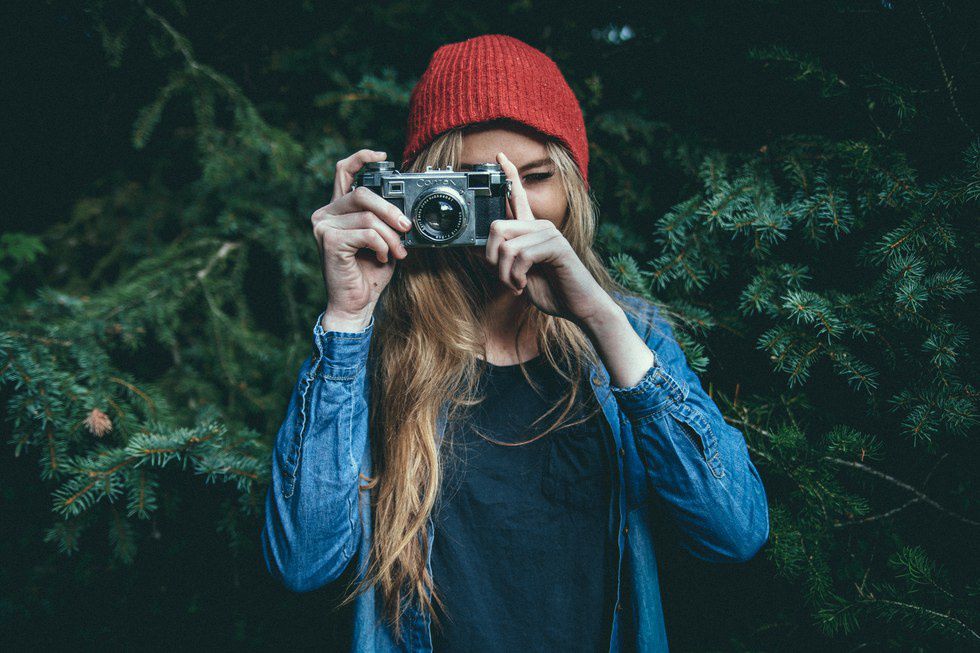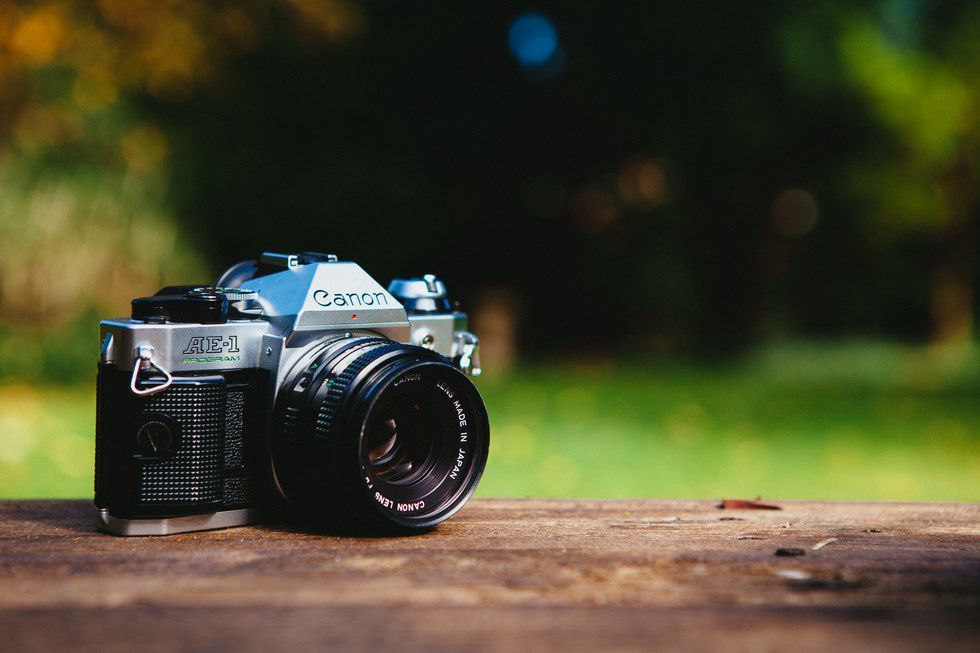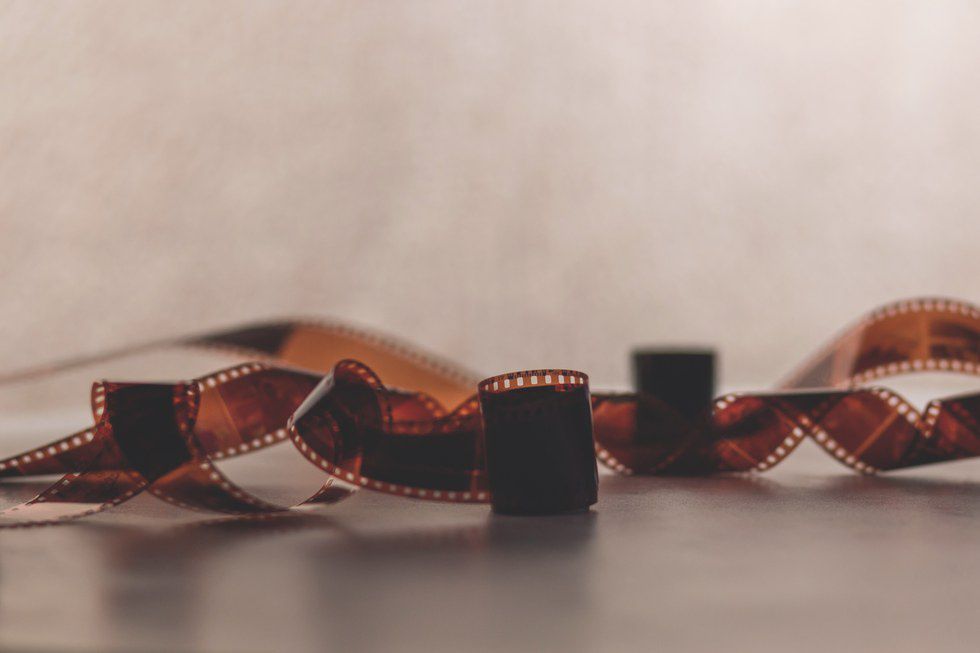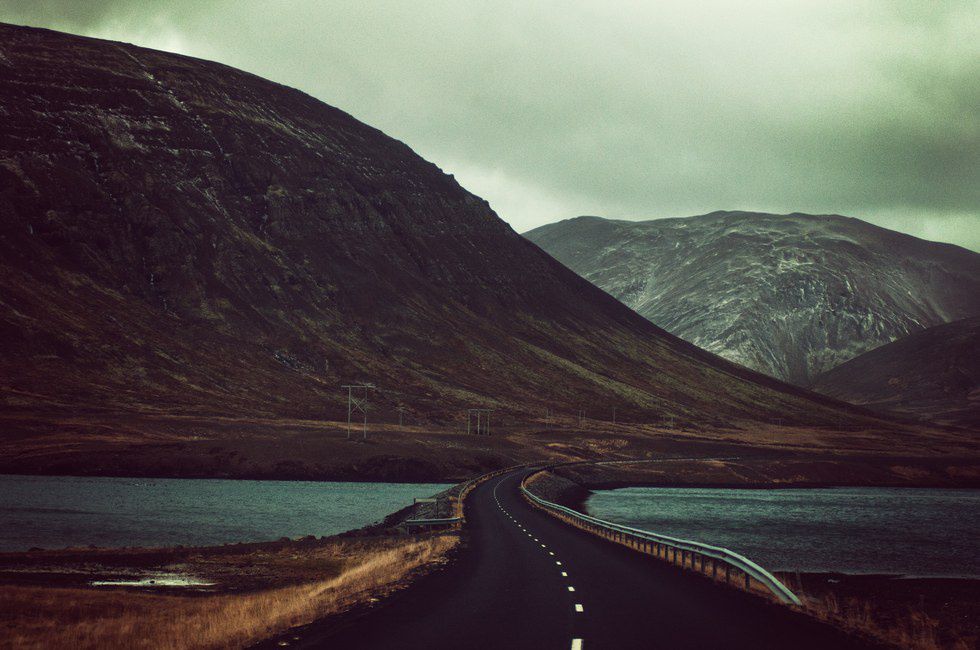I recently had a conversation with a friend about the pros and cons of film photography. It really made me think, and I basically ended up advising against it. In the last few years, film photography has really seen a resurgence in popularity. According to the photo news websites Kodak is even rebooting old film stock that they had stopped making. This article isn’t intended to enrage, or challenge anyone’s sense of artistic identity, what follows is my opinion, and you are invited to treat it as such.
I started photography with black and white film, and it was a really cool learning process. I loved everything about it -- Fiddling around in the little black-out bag, trying to get the film from the canister to the spool by feel alone. Listening to the hum of the drying cabinets. Being in the red light of the darkroom making prints appear on paper as the chemicals I had mixed myself sloshed over them was magical. Even the smell of developer and fixative, which I hated at first, became a familiar and welcome part of my day.
When I was doing this in school the supply situation was very liberal. If you ran out of film, you go get more, for free. Run out of photo paper? Go get more. Again, free. We were welcome to use the darkroom any time, and it was rarely busy. For me, it became a kind of refuge from the hustle and bustle of teenage life.
Camera operator error, poor composition knowledge, and a total lack of experience made sure that I was making a lot of poor to mediocre prints. But boy was I enjoying the experience. I was also learning all the time, and fostering a love for making images. The thing is, all that said, for the life of me, I cannot think of a good reason that someone starting out in photography should shoot film now.
You might score a great deal on a really good film camera that looks so good with your outfit. You might be able to snatch up a few old, but optically wonderful lenses for your new accessory, too, and you’ll look low-key like a true artist on Insta. Problem is, in no time at all you’ll be realizing that you may have stepped into a bit of financial quicksand, and that film comes with a special set of compromises, that in my perhaps overly pragmatic mind, are just not necessary.
What I mean by “not necessary” is that this set of compromises, or limitations, just doesn’t foster growth. I’ll talk more about this in a minute.
“What are you talking about? Film is cheap!”
A roll of film is cheap. A film camera is cheap. Manual lenses can be cheap. But the cost builds up over time. Let’s explore this idea. A roll of Ilford XP2 costs ten bucks on Amazon right now. You get just twenty-four shots out of each roll. With a digital camera, you buy once, and shoot as much as you like. I’ll come back to why this is important later.
Let’s do some maths! Roll of film, twenty-four shots, ten bucks. Let’s buy a hundred rolls because we don’t want to mess around running out of film and making multiple trips to the camera store. That gives you 2400 shots and costs one-hundred dollars. How long it takes you to burn through 2400 shots is going to depend entirely on your shooting habits, but it’s a finite amount of pictures you can make, albeit quite a few. Let’s not forget that we need to develop that film to see our pictures. We’re not going to build a home darkroom because it’s impractical. Instead, we’ll send our film to a reputable place for development at five bucks a roll. Adding development costs, that’s fifteen dollars a roll. So our cost is now one-hundred fifty dollars for 2400 shots. Hmm.
At this point I really want to stress that I understand that money is not an issue for everybody, and in an ideal world would not be for anybody. As I mentioned before, I have a pragmatic mindset, and the way I see things, the cost of ownership of a film rig is just one of the drawbacks.
Let’s just get some more drawbacks out of the way. If you want to see your images, you need to print them yourself, which is a whole skillset in itself and requires special equipment like an enlarger, chemicals, oh, and a darkroom. Furthermore, because you don’t get to see your images immediately, being able to adjust your settings to get the image you want at the time of shooting is a luxury not afforded to the film shooters among us. It’s not the end of the world, but I believe that a faster process allows us to focus less on technical aspects, and more on what we want to say with our images.
Texas based photographer and film-maker Ted Forbes, who runs a wonderful Youtube channel called The Art of Photography, argues that photography is all about having something to say. I know that Ted is fond of film, but I don’t think he’d argue with the notion that digital photography has a distinct set of advantages over film.
I digress. So, you’re going for it. You spend one-hundred fifty dollars for your film, and one-fifty for a Canon AE1 with 50mm lens. Then you spend three-hundred on a bespoke leather strap that matches your desert boots. Ok, I’m kidding. You don’t do that. So, three-hundred bucks and you can start clicking away, precisely 2400 times.
In an alternate universe, other you buys a used Fuji X-Pro1 for $450. I’ve talked about this camera before. It’s older, but still produces files that will blow you away, and it has autofocus, modern light metering and all that stuff. Use an adapter and an old manual lens for around $75 total, or couple the body with the venerable 35mm f/2 Fuji lens for $299 on sale. You’ve spent $749 or $525 respectively, and you have a highly respectable, extremely well built piece of kit that, image-wise, is still stunning, and will be for some time
If you want to use the Fuji camera in full manual mode, like a film camera, which you should, you can get pretty close to the film camera experience, sans the film. You can shoot a virtually unlimited amount of shots, and this brings me back to something I said earlier that I think is really important: Spending more time making more images.
You can argue that film causes you to slow down and spend more time trying to perfect the shot, so that you don’t waste resources, and end up with better photos. I don’t necessarily buy that argument. You can slow down with a digital camera too, spend more time thinking about what you’re doing. But you can also shoot safe in the knowledge that you can experiment all you want. I sincerely believe that lots of experimentation over a long period of time yields better skills, and thus better photographs. Experimentation is easier when you can see your results in camera and start to build an understanding of what works, and why. This just makes shooting “in the moment” easier, and that is good.
I don’t think I’ve really said anything that will get anyone’s nose truly out of joint just yet, but I’m about to. I sincerely believe that, contrary to what seems to be a popular notion, shooting film isn’t going to make you a better photographer. It’s not going to teach you any more about composition, the exposure triangle, working with lighting, people, or shooting in challenging situations, or building an artistic identity in your images just because it’s film. It will get expensive quickly, and not being able to see your results immediately and adjust for error or preference is potentially very frustrating.
When I shot film I didn’t have a choice. It was what it was. Digital cameras were in their infancy, and were basically crap. And I got to shoot film for free, and had access to all the equipment I needed to make prints from my negatives all day long.
Now there’s a huge exception here. If you want to shoot film for the experience, or because you are curious about the “feel” that people talk about, then you should. I will never discourage someone from experimenting with their artistic outlet. But when it comes down to making a choice between film or digital, the answer is clear for me. I want to be able to shoot with as few limitations as possible, and I want to see what I’m shooting now. Your needs and expectations may vary, and that’s a good thing.
If you want to try it, go ahead. You might get amazing results straight away, and totally fall in love, and that would be awesome! But if you’re starting out, and have been seduced by the pop culture move back toward analog photography, understanding that film photography comes with certain limitations compared to its digital counterpart is the key take-away here.
By all means shoot film! Just don’t feel like you’re missing out on some mystical journey of the soul if you don't, because that journey is your artistic expression, what you say through your images, and that is not dependent on what gear you use.




